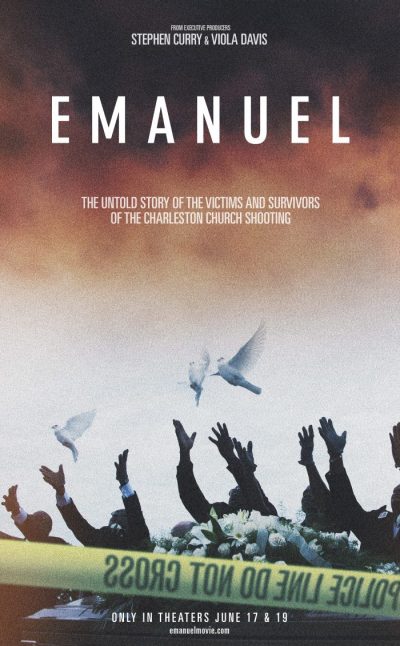 Hello World,
Hello World,
Tonight, thousands of churchgoers throughout the country will convene at their respective churches for Wednesday Bible Study. Where Sunday Morning Service can be a spectacle in many churches, Wednesday Bible Study is less of a production and as a result, more relaxed. Many of those who show up on Sunday don’t on Wednesday so the gatherings tend to be smaller. In many smaller churches, the members gather in a room that is not the sanctuary and even sit in a circle of chairs. Although the church is primed for visitors on a Sunday morning, a visitor or two may amble in and be welcomed to the fold without much ado on a Wednesday.
Maybe that’s why 21-year-old white supremacist Dylann Roof chose a Wednesday Bible Study to show up at South Carolina’s Mother Emanuel A.M.E. Church, the oldest A.M.E. church in the South, to slither in and sit among the people he intended to slaughter. In the Bible, it says the Lord will show up like a thief in the night so we must be ready but the devil knows the Word too. Roof’s slaughtering of 9 Emanuel A.M.E. members, the historical threads that led to what unraveled that fateful day, the astounding forgiveness of Roof by the family members of those whose lives were stolen and more is explored in the documentary EMANUEL. Marking the 4th anniversary of this distinctly American act of terror, EMANUEL will be in movie theaters across the country on Monday, June 17 and Wednesday, June 19 only. I was able to see a screener of this movie, which is from executive producers Stephen Curry and Viola Davis, co-producer Mariska Hargitay, and director Brian Ivie, and I was in a word “moved.”
While the news coverage of the church shooting was rightfully plenteous, EMANUEL was an exhaustive exploration that simply cannot be covered in the constraints of a news story. It has been said that “nothing comes from nothing” and that is true in the case of the Emanuel A.M.E. Church shooting as well. Apparently, Charleston, where Mother Emanuel A.M.E. is located, is called the “Holy City” although the unholy had a safe harbor there. Charleston was the capital of the slave trade and roughly 40 percent of slaves who entered this country entered through this city. In fact, the amount of black people in Charleston was so voluminous that the city had a black majority. Freed slave Denmark Vesey, who helped to found the African Methodist Episcopal Church, planned to lead a slave revolt there until his plan was discovered. Vesey’s church, where he able to galvanize members to revolt with him, was burned after he was executed for his actions.

And then in modern day times, you have Rev. Clementa Pinckney, who was not only senior pastor at Mother Emanuel A.M.E., he was a member of the South Carolina Senate. (Thank God for progress!) He spoke about black people having the freedom to be what God intended intended them to be and that sometimes death would be required for that freedom to come to fruition. Saints, it was no accident that Roof choose Charleston and Mother Emanuel A.M.E. church.
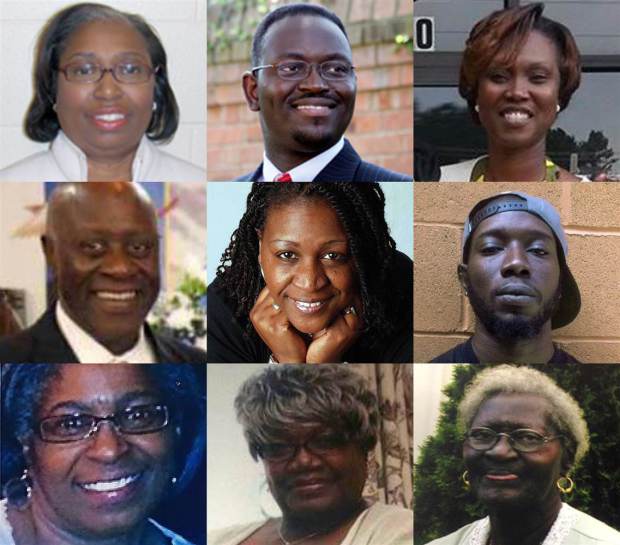
Family members of the slain members were interviewed in EMANUEL. I was touched by all of their testimonies by I was most touched by the testimony of the Reverend Anthony Batiste Thompson, who is the pastor of Holy Trinity Reformed Episcopal Church of Charleston. Rev. Thompson was married to the late Myra Thompson, who was killed in the shooting. Thompson, like Samuel in the Bible, was called to the ministry as a boy. While Samuel heard the voice of God in the house of the Lord, Thompson heard the voice of in a Piggly Wiggly parking lot! He heard someone call his name three times although he was in the parking lot alone. It was after the third time that he realized it was God and that God wanted him to be a preacher.
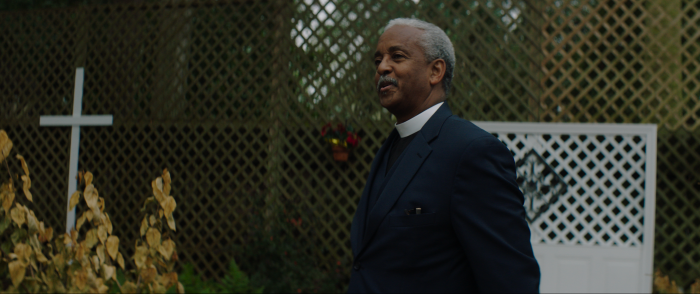
Many years later, on that tragic Wednesday night, he wondered why his wife Myra was so happy as she readied herself for Bible Study. He said she was “overjoyed” and “floating in the house.” He wanted to ask her why she was so happy because he had nothing to do with it. (Just like a man to say something like that, LOL. My husband is not only source of my happiness and he should be happy that’s true!) He said he decided he would ask her why after she returned from Bible Study so as not to affect her high. He usually hugged or kissed her before she left the house but this time he was in the bathroom just as she was leaving and she was in a rush. She told him to catch her at the car. But he didn’t get to her car on time either. He said after the shooting, he realized why she was so happy and why he couldn’t touch her. “God had already scooped her up.” Imagine that? She was already in the loving arms of Jesus. No earthly love can compare.
Thompson said it was the voice of God, which he originally heard as a five-year-old boy, that told him to forgive Roof and tell him so during a bond hearing just TWO days after Roof murdered his wife. Since then, Thompson penned his book “Called to Forgive: The Charleston Church Shooting, a Victim’s Husband, and the Path to Healing and Peace” which was release this month through Baker Publishing.
Many of the family members of the victims expressed their forgiveness of Roof, which shocked many and angered some. But not all family members were able to instantly forgive Roof. Melvin Graham, who is the brother of shooting victim Cynthia Hurd, has not been able to do so. While expressing admiration for those who forgave, he said, “I’m a work in progress.” I get that.
Other key points in the movie that affected me:
- Polly Sheppard’s account that Roof let her live so that she that she could “tell the story.”
- Felicia Sanders, who was a human shield over her granddaughter, watched her son Tywanza Sanders get killed, after he confronted Roof. Tywanza told Dylann that “we mean you no harm” but that did not matter to the terrorist. Thankfully before he passed, Sanders was able to tell her son, “Tywanza, I love you,” and his last words were, “Mom, I love you too.”
- Charleston’s Chief Coroner Rae Wooten’s examination of the bodies revealed that Roof had ambushed them without warning.
- Not only was Roof captured and arrested without being killed in the process, he was given Burger King.
- When President Obama sang “Amazing Grace” at the homegoing for Rev. Clementa Pinckney. Lord knows I miss me some him. Can I get a witness?
There are many astounding accounts such as Felicia Sanders’ pink-paged Bible and Chris Singleton’s wrist-written Scripture, but I cannot give the whole documentary away. But hopefully, I have told you enough to make you want to see it for yourself. I highly recommend doing so…
Below is a trailer for EMANUEL:
EMANUEL focuses on the incredible forgiveness that was demonstrated by the victims and their family members, and how that forgiveness prevented potential backlash by the in response to the racially motivated crime. The movie was made in direct partnership with the City of Charleston and the families affected by the tragedy . The producers of EMANUEL will donate their share of profits from the film to the survivors of the shooting and the families of the victims
For more information on EMANUEL, please visit, www.emanuelmovie.com.
Any thoughts?


 As usual, let me know if you like my list! Enjoy and share!
As usual, let me know if you like my list! Enjoy and share!
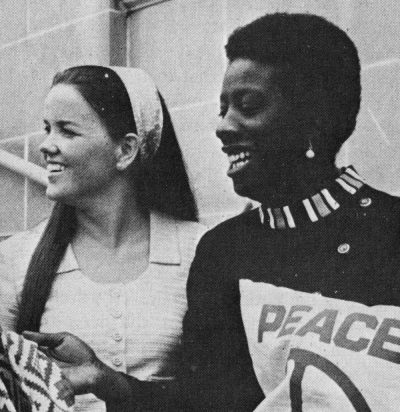 7. “Unita Blackwell, Civil Rights Pillar and First Black Woman Mayor in Mississippi, Dies at 86” by Adam Ganucheau
7. “Unita Blackwell, Civil Rights Pillar and First Black Woman Mayor in Mississippi, Dies at 86” by Adam Ganucheau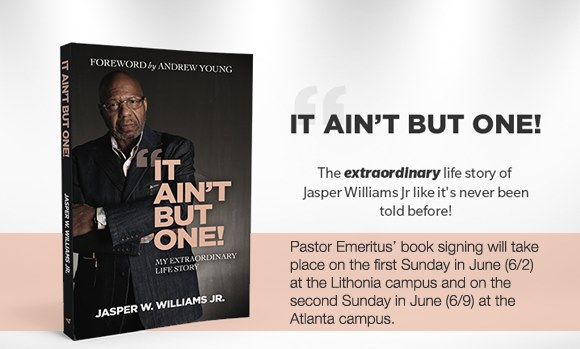 Hello World,
Hello World,